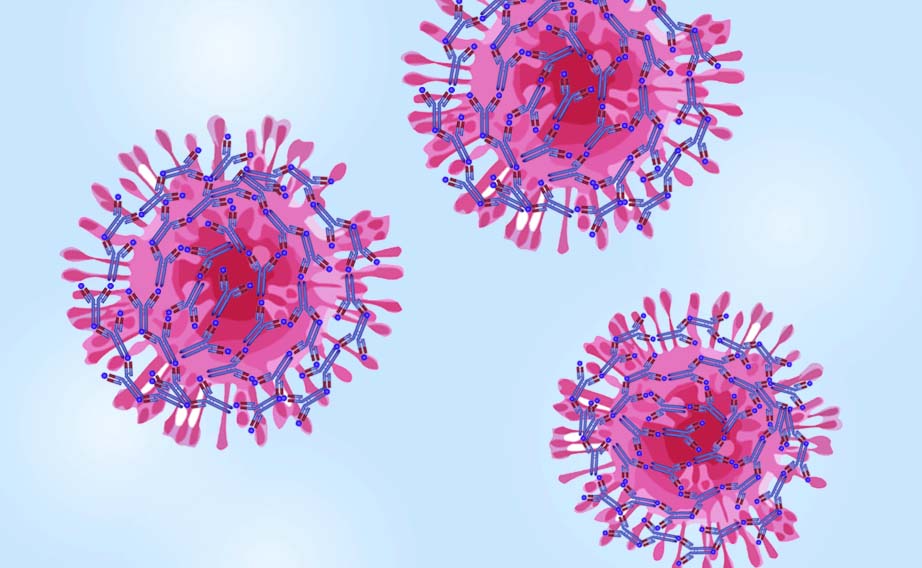MUST READ! COVID-19 Vaccine: Researchers Warn Rush To Develop Vaccine Could Backfire.Dangerous Antibody-Dependent Enhancement (ADE) Could Occur
Source: COVID-19 Vaccine Jul 14, 2020 5 years, 7 months, 2 days, 7 hours, 8 minutes ago
COVID-19 Vaccine: There are more than 140 SARS-CoV-2 vaccines in development and the race for a successful candidate to help prevent COVID-19 is making many researchers jumpstart processes and in some cases even by pass safety protocols.

Although an effective and safe vaccine would be a major advance in the fight against COVID-19, there are challenges in evaluating the efficacy of these vaccines during the pandemic, as an analysis article outlines in
CMAJ (Canadian Medical Association Journal).
https://www.cmaj.ca/content/cmaj/early/2020/07/09/cmaj.201237.full.pdf
However before we even get to that report, Thailand Medical News would like to elaborate on one of the key considerations that was mentioned in that report and that is the issue of Antibody-Dependent Enhancement (ADE) also known as disease enhancement or immune enhancement.
Antibody-Dependent Enhancement (ADE) refers to a counter-intuitive and potentially dangerous situation: when the presence of antibodies, which are supposed to vanquish disease, worsens rather than quells an infection. It is a rare but not idle concern. The pandemic virus belongs to the same family of coronaviruses that causes Sars (severe acute respiratory syndrome) and Mers (Middle East respiratory syndrome). The hunt for vaccines for these 21st-century diseases: Sars appeared in 2002, Mers in 2012 has been stymied by evidence of ADE.
During that time, some animals that were given experimental Sars vaccines suffered more severe lung inflammation than unvaccinated animals when subsequently infected. As a result those trials stopped and there is still no effective Sars vaccine.
Dr Beate Kampmann, director of the Vaccine Centre at the London School of Hygiene & Tropical Medicine (LSHTM), says that observations of ADE with previous coronaviruses mean vaccinologists must tread carefully. “We don’t want to blow the risks out of proportion but nobody can give a 100 per cent guarantee that disease enhancement won’t happen. If it does emerge here, it would be a very serious challenge.”
The emergence of ADE would be a setback for any candidate vaccine and a cruel plot twist in the tale of COVID-19, which has turned out to be a more disruptive contagion than either Sars or Mers.
Typically, vaccination builds a biological “memory” of the virus but without the danger of natural infection. If the virus does come knocking, a vaccinated body should be primed and ready to fight back.
However in ADE, that priming goes wrong. Instead of keeping the virus at bay, the immune system aids and abets the invader; the vaccine, which should prevent disease or make it milder, results in more severe symptoms.
When the phenomenon appeared in Sars research, vaccine development halted. But scientists cannot be sure it will always emerge during testing.
Dr Mike Turner, head of major science investments at the Wellcome Trust biomedical charity, which funds global vaccine research and played a significant role in the race for an Ebola vaccine told Thailand Medical News,
“It was only
when Dengvaxia was rolled out to thousands of people that the problem of enhancement was picked up.”
Dr Anthony Fauci, who leads the US research response to Covid-19, said as much when interviewed about an eagerly anticipated COVID-19 vaccine, from the US company Moderna. He spoke of the need to balance the lives saved with those that might be endangered by ADE, “So, if for every one that has enhanced illness, you save a thousand lives, I’ll take that, right?”
In the Canadian report, the researchers advise that those evaluating vaccine efficacies must take into account the risk of infection in the population being studied, use of social distancing practices, rates of pre-existing immunity from earlier COVID-19 and factors that influence the likelihood of severe COVID-19.
Dr Bahaa Abu-Raya from BC Children's Hospital, Vancouver, British Columbia, and coauthor of the report said, “The rapidly changing pattern and dynamic of virus exposure and level of population immunity during the evolving pandemic are potentially important confounders in the assessment of the efficacy of SARS-CoV-2 vaccines. This should be considered in sample size calculations for efficacy trials."
Certain key critical considerations that were brought up were:
-Proper and adequate sample sizes are needed to demonstrate effect of a vaccine in reducing disease and may need to be revised based on rates of SAR-CoV-2 transmission in study populations.
-Constant public health interventions such as social distancing may reduce transmission and affect ongoing assessment of SARS-CoV-2 vaccines.
-The baseline level of immunity could influence a trial outcome. For example, the benefit of a highly efficacious vaccine may not be evident in a population with high levels of previous exposure later in the pandemic.
-There is a possibility that COVID-19 might be more severe in some people who have been vaccinated (called antibody-dependent enhancement [ADE]). This should be monitored as vaccine-related ADE may be evident only after large numbers of vaccinated people have been exposed to the virus and followed for some time.
The researchers also emphasize the need to test vaccines in vulnerable populations such as seniors, health care workers, Black people and those with risk factors for severe disease and who may have a different response than younger, healthier trial participants.
Dr Manish Sadarangani, Director of the Vaccine Evaluation Center at BC Children's Hospital and Sauder Family Chair in Pediatric Infectious Diseases at the University of British Columbia and co-author also added, "The changing dynamics of the COVID-19 pandemic present a unique challenge for evaluating vaccines for SARS-CoV-2. Researchers need to understand the immune responses generated after infection with this virus and whether they are protective, as this will help to inform the development and evaluation of these vaccines."
For more about
COVID-19 Vaccines, keep on logging to Thailand Medical News.
